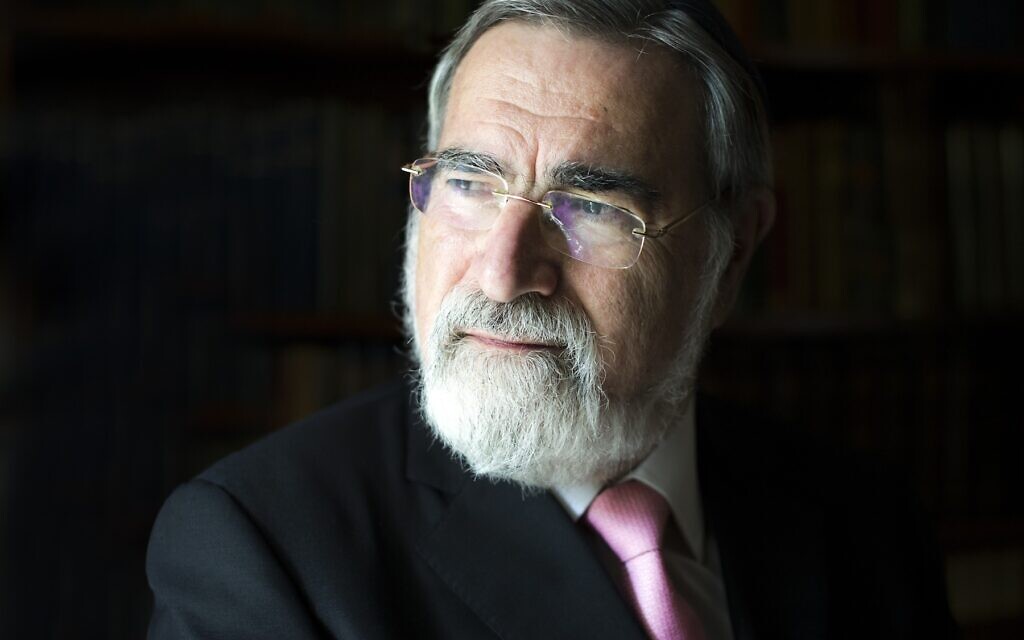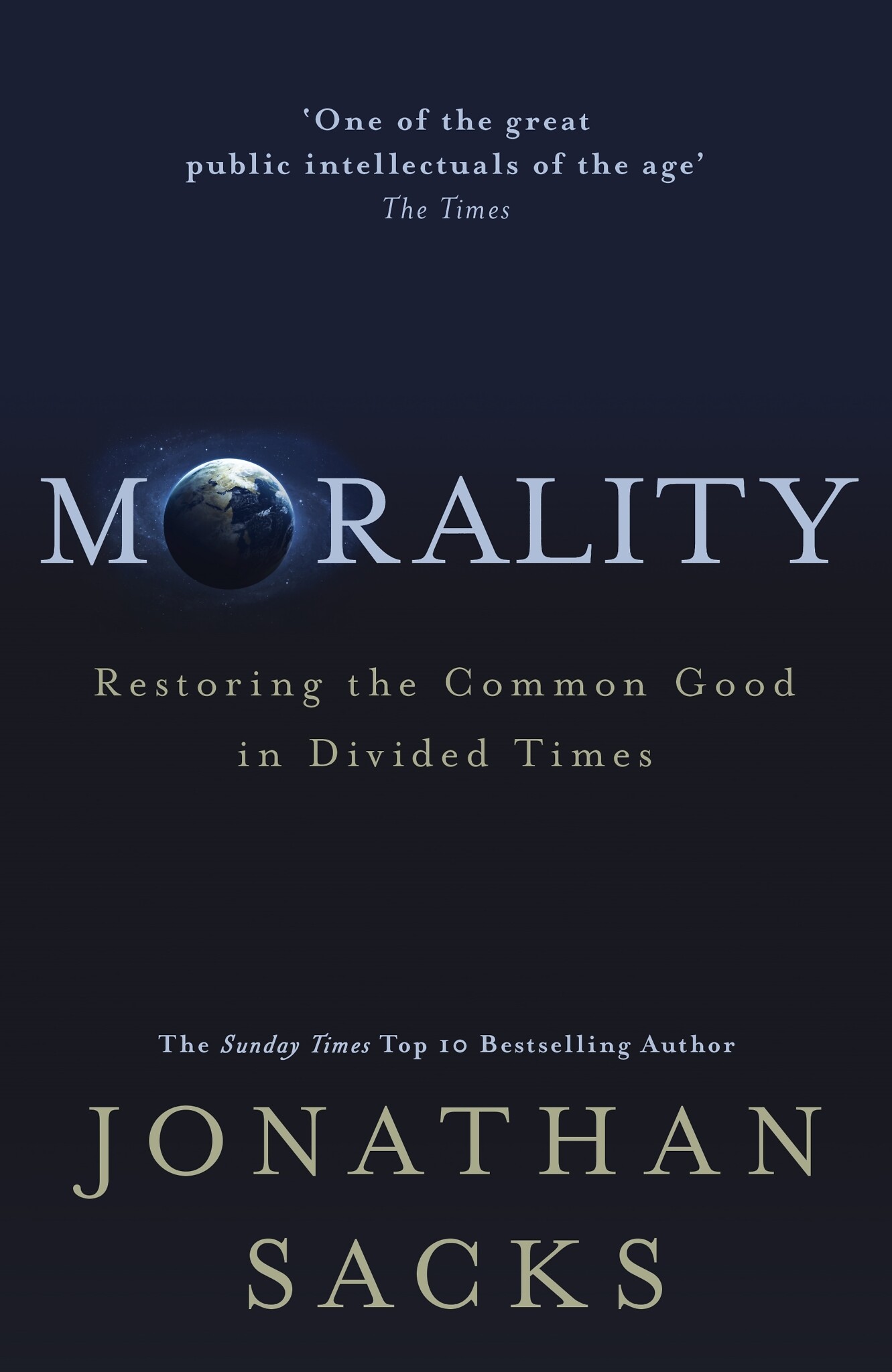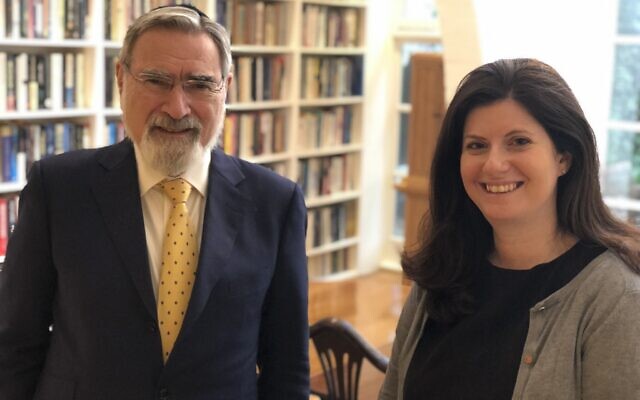Rabbi Lord Sacks: ‘Selfishness will not protect us from coronavirus’
Francine Wolfisz met the former Chief Rabbi to discuss his new book, Morality, which argues that society may have 'hit a crisis moment'

Related story: Lord Sacks ‘still shakes’ at memory of near-drowning 50 years ago
It’s a sobering thought, but has society reached a point where we no longer help each other? Think of Brexit, when disagreements brought Parliament to a standstill, of our disquieting ease at publicly shaming people on social media or, more recently, panic buying caused by coronavirus fears, with little regard for ensuring there will be enough food left for the vulnerable.
It’s enough for Lord Sacks to conclude we may have “hit a crisis moment” – but now is the perfect time for change.
Get The Jewish News Daily Edition by email and never miss our top stories Free Sign Up
The former Chief Rabbi dissects the issue in greater detail in his latest book, Morality: Restoring the Common Good in Divided Times, which is published today (Thursday).
At its core, the much-respected 72-year-old argues “we have moved very largely from a ‘we’ society to an ‘I’ society”.
Sitting opposite Lord Sacks in his comfortable north-west London home, the award-winning author reveals how we came to a point that he now describes as “the cultural equivalent of climate change”.
He explains: “There have been three successive waves of causation. Number one was the social revolution in the 1960s and was about whatever works for you.
“Number two was the economic revolution of the 1980s, when greed was good and self-interest fuelled the economy, and number three, the latest wave, is the technological revolution, which has put the focus on the self through social media.
“So, we’ve been very good on individualism, but much less good on collective responsibility. It’s all been wonderfully liberating, but at the same time we are now beginning to count the costs.”
At the time of writing his book, coronavirus wasn’t even worthy of a mention in a footnote, but recent headlines of people attempting to escape from quarantine or getting into physical fights over toilet paper somehow seem acutely pertinent. Sacks appears contemplative as he nods his head in agreement.
“We have the example of Alla Ilyina, a Russian woman who escaped from quarantine and posted her story on Instagram saying, ‘I have a right to my freedom’, but freedom is collective, not individual. If we purchase our freedom at the cost of someone else’s, the result is not freedom.
“So I think coronavirus is going to test our capacity to work for the benefit of others.
“This situation of putting up with personal inconveniences for the sake of public safety is going to challenge and force us to realise that selfishness is not going to protect us.
“We have to work for the good of the whole if we’re to prevent this becoming an epidemic.”

In other examples of where individuals focus on themselves, rather than others, Sacks refers in his book to the rise of egoism and how “politics has become about personalities instead of about policies”.
A later chapter focuses on how social media has allowed people to publicly shame one another without even being in their presence – and, importantly, see the impact of their words.
“Not being in someone’s presence actually allows you to be much nastier than you would be in their presence,” he concludes.
“When you’re there face to face, you realise you’re in the presence of another living, breathing human being with feelings and vulnerabilities and that automatically limits your behaviour.
“You don’t even have to exercise willpower, as we are hardwired to limit aggression in our speech and our body language. That’s what’s called civility.
“Electronic media gets rid of all that, so you don’t get to see the other person flinch or cry. When it becomes viral, you get this sort of ‘cancel ‘culture, where somebody actually becomes a non-person. It’s a new low in public incivility.”
Focusing on one’s own needs isn’t just selfish – it can also lead to loneliness, warns Sacks in another of the book’s chapters, although he acknowledges that “religions do community pretty well – and I think we do it as well as anyone – if not better”.
He tells me: “An awful lot of people in Britain are living alone, and we know that loneliness can be as dangerous to health as obesity or smoking 15 cigarettes a day.
“I think it’s really an indictment of our society that so many people are living alone, but that’s sadly what happens when for 50 years you look down on the institution of marriage. It’s also what happens when you fail to value the extended family or the local community.
“There’s this little village in Sardinia where there are more centenarians than anywhere else in the world. Why? Because they are never alone and the best way of growing old well is to live in a culture where old age is valued. But, sadly, today that’s not always the case.”

Morality is not, however, just a disheartening indictment on society – there is hope ahead, if we just refocus on our collective responsibility, argues Sacks.
“I don’t want this book to be prescriptive,” he says, “but we should all be taking a moment to stop and see the totality of what has been missing. Let’s re-engage with the ‘we’, not just the ‘I’.
“You hope that some people will read this book and say that’s right, and will work for a charity, join a congregation or go into politics to serve, rather than have people serve them.
“All you need to do is change some minds and you begin to change your generation.”
- Morality: Restoring The Common Good in Divided Times by Jonathan Sacks is published by Hodder, priced £20 (hardback). Available now

Thank you for helping to make Jewish News the leading source of news and opinion for the UK Jewish community. Today we're asking for your invaluable help to continue putting our community first in everything we do.
For as little as £5 a month you can help sustain the vital work we do in celebrating and standing up for Jewish life in Britain.
Jewish News holds our community together and keeps us connected. Like a synagogue, it’s where people turn to feel part of something bigger. It also proudly shows the rest of Britain the vibrancy and rich culture of modern Jewish life.
You can make a quick and easy one-off or monthly contribution of £5, £10, £20 or any other sum you’re comfortable with.
100% of your donation will help us continue celebrating our community, in all its dynamic diversity...
Engaging
Being a community platform means so much more than producing a newspaper and website. One of our proudest roles is media partnering with our invaluable charities to amplify the outstanding work they do to help us all.
Celebrating
There’s no shortage of oys in the world but Jewish News takes every opportunity to celebrate the joys too, through projects like Night of Heroes, 40 Under 40 and other compelling countdowns that make the community kvell with pride.
Pioneering
In the first collaboration between media outlets from different faiths, Jewish News worked with British Muslim TV and Church Times to produce a list of young activists leading the way on interfaith understanding.
Campaigning
Royal Mail issued a stamp honouring Holocaust hero Sir Nicholas Winton after a Jewish News campaign attracted more than 100,000 backers. Jewish Newsalso produces special editions of the paper highlighting pressing issues including mental health and Holocaust remembrance.
Easy access
In an age when news is readily accessible, Jewish News provides high-quality content free online and offline, removing any financial barriers to connecting people.
Voice of our community to wider society
The Jewish News team regularly appears on TV, radio and on the pages of the national press to comment on stories about the Jewish community. Easy access to the paper on the streets of London also means Jewish News provides an invaluable window into the community for the country at large.
We hope you agree all this is worth preserving.
-
By Brigit Grant
-
By Laurent Vaughan - Senior Associate (Bishop & Sewell Solicitors)
-
By Laurent Vaughan - Senior Associate (Bishop & Sewell Solicitors)
-
By Laurent Vaughan - Senior Associate (Bishop & Sewell Solicitors)
-
By Laurent Vaughan - Senior Associate (Bishop & Sewell Solicitors)





















